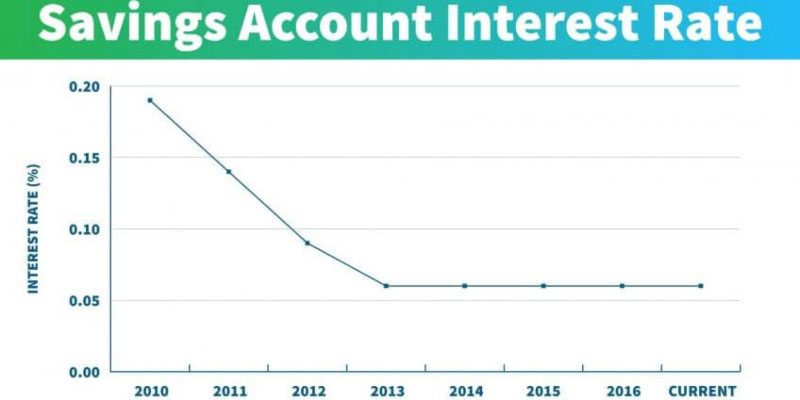Investment Banking Careers With The Highest Salary
Feb 04, 2024 By Triston Martin
To help people, businesses, and governments raise cash and make smart financial choices, investment banks engage in a highly competitive and profitable market known as "investment banking." Many people who are interested in earning a good living choose to work in this field because of the high pay and bonuses that are commonplace. Paying Jobs In Investment Banking tend to pay the most at the largest and most prestigious financial institutions like Goldman Sachs, J.P. Morgan, and Morgan Stanley. Leading and managing teams, carrying out sophisticated financial transactions, and advising clients on strategic financial choices are all hallmarks of the highest-paying positions in investment banking, such as Managing Director, Executive Director, and Vice President. Investment Banking Analyst, Associate, and Sales and Trading positions are also highly compensated since they include doing financial analysis, building financial models, and trading financial products. Strong analytical, problem-solving, and communication abilities are often required to succeed in investment banking.
Investment Banker
An investment banker is a financial adviser that works with clients on M&A, capital markets, and other corporate finance matters. They help customers by assessing their current financial state and providing advice on managing their money better. Underwriting bonds, equities, and other securities are one way that investment bankers assist their customers in obtaining funding. Investment bankers engage in various activities, including debt and equity capital markets, M&A, and corporate finance.
They have many customers, from governments, businesses, banks, and very wealthy people. Strong analytical, communication, and interpersonal skills are essential for success in the high-stakes world of investment banking. Investment bankers in the United States may expect to make between $110,000 and $200,000 annually. Senior investment bankers, on the other hand, may make $1 million a year or more when bonuses are included in.
Manager Of Corporate Finance

A corporate finance manager is in charge of an organization's money management. Financial planning, budgeting, forecasting, and analysis all fall within their purview. Managers in charge of corporate finance are also responsible for their organization's financial strategy and capital structure. Managers of corporate finances often collaborate with other divisions, such as HR, Legal, and Accounting.
Moreover, they are accountable for formulating and enforcing the company's financial rules and processes to guarantee the best financial results. In the United States, a corporate finance manager may expect to make between $200,000 and $300,000. However, elite corporate finance managers may make $300,000 or more annually when incentives are included.
Equity Research Analyst
Stocks, bonds, and other securities are the focus of an equity research analyst's study and recommendations. A corporation's financial performance and future prospects are assessed using several financial models. Investment banks, brokerage houses, and other financial organizations employ equity research analysts. Institutional investors like pension, mutual, and hedge funds provide investment advice.
Strong analytical skills, an understanding of financial modeling, and familiarity with the business are essential for an equity research analyst career. In the United States, an equities research analyst can expect to make between $80,000 and $120,000 annually. On the other hand, senior stock research analysts might make $300,000 or more yearly when incentives are included.
Investment Banking Associate

A key player in the execution of financial transactions and the provision of strategic advice to customers, an Investment Banking Associate is a mid-level professional in the investment banking business. They often participate in IPOs, debt and equity issues, mergers, and acquisitions. Industry research, financial statement analysis, financial model development, pitch book writing, marketing collateral creation, and client liaison are only some of their major tasks.
A bachelor's degree in finance, economics, or a similar discipline and many years of experience in investment banking or a related industry is required to become an Investment Banking Associate. You'll need sharp analytical, talking, and people skills to succeed in this role. Associates in the investment banking industry usually work long hours in a stressful and competitive atmosphere, but they are highly driven to succeed. Yet, the benefits, such as high pay and prospects for growth in one's profession, may be substantial.
Conclusion
Jobs in investment banking are among the best paid in the financial sector. Compensation packages in this field are often regarded as among the most substantial in the country. High-paying careers in investment banking often need years of experience and proficiency in financial analysis, strategic planning, and transaction execution. Candidates should also be fluent in English, able to work effectively under pressure, and well-versed in financial markets and products. The investment banking industry may be competitive, but it also offers the chance to network with influential people and companies. Investment banking is an appealing alternative for those interested in a finance career with the essential skills and certifications.

See: How Credit Card Balance Transfers Work?

Investment Banking Careers With The Highest Salary

How do Splitit payments work?

Refinance Your Mortgage

What Are the Rates of Return for Checking and Savings Accounts

Learn: Rules for Having a Health Savings Account (HSA)

How to Set Up Savings Accounts for Grandchildren

2024's Top Reverse Mortgage Options: An Insightful Exploration

Decoding Bank Profits: Unveiling 5 Effective Sales Strategies
